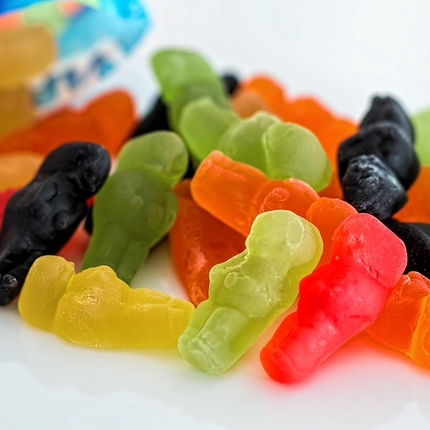It can be a challenge to make sure your child maintains proper oral hygiene. Every parent knows that kids love to stick things in their mouths—especially when they’re told not to. While it may seem like a monumental task to keep your child’s teeth and gums clean and healthy, knowing the common teeth and mouth issues that children experience, as well as their causes can go a long way to ensure proper oral hygiene.
While the Society of Pediatric Dentistry recommends that you bring your child to a dentist for children by their first birthday, or by the time their first tooth emerges, there are a few common dental issues that young children face that you as a parent can look out for in order to help your child maintain a bright, healthy smile.
1. Baby Bottle Tooth Decay or Nursing Bottle Syndrome
Many parents are unaware that drinking from a bottle can be bad for your children’s teeth. Drinking from a bottle causes prolonged exposure to liquids compared to normal drinking. If your infant children are drinking sugary beverages with liquid carbohydrates, this results in frequent dental contact with sugars. This includes fruit juices, formula, milk, sugar water, and even human breast milk.
Bacteria feed on the sugar that builds up on your child’s teeth and can cause tooth decay. This process is known as baby bottle tooth decay, nursing bottle syndrome, and many other names. Tooth decay can cause your child pain, while also making it more difficult to chew and eat.
If teeth become too damaged, your child may need fillings, or in extreme cases, their teeth may fall out or need to be removed in order to prevent further damage or pain. If your child experiences pain from tooth decay, visit a dentist that specializes in children’s dentistry immediately.
What can be done to avoid baby bottle tooth decay? Avoid calming or comforting your baby with sugary beverages or milk when it’s not their usual feeding time. Instead, give them water, which will not damage their teeth. Alternatively, provide them with a pacifier. Although your child may prefer it, never add sugar or honey to your child’s pacifier, as this will also cause tooth decay.
You can also clean your child’s teeth with a wet cloth or soft gauze after feeding, in order to make sure there’s no sugar buildup on their teeth. We also recommend switching to a sippy cup as fast as possible, as drinking from a cup is less likely to cause prolonged exposure to sugar.
Of course, children of all ages can experience tooth decay due to improper oral hygiene. To teach your children the importance of brushing and flossing from a young age, book an appointment with Vitality Dental where we can provide an oral hygiene lesson in addition to a comprehensive oral exam.
2. Early Tooth Loss
Early tooth loss can have a damaging effect on your child’s long-term oral health if not dealt with properly. The most common causes of early tooth loss include tooth decay, lack of jaw space or teeth overcrowding, or injury.
Early tooth loss that takes place well before the adult teeth are ready to grow in can often result in teeth misalignment issues. Baby teeth serve as placeholders that reserve the space for the adult teeth to grow in. The gap created by tooth loss can cause neighbouring teeth or later-emerging adult teeth to move into the gap. Once the underlying adult tooth finally decides to grow in, this gap may no longer be free, causing teeth to grow in crooked or misaligned. This can cause a range of issues, including chewing problems or jaw pain.
If your child loses a tooth earlier than expect, you should make a visit to your local children’s dentist in order to assess solutions for maintaining that space, which can include using a space maintainer, a band that holds the space open.
3. Thumb sucking
It’s very common for children to suck their fingers, pacifiers, toys, or whatever else they can get their hands on. Thumb sucking in particular offers a sense of comfort, but if it continues past the age of five when adult teeth start to emerge, it can cause permanent alignment issues. Pressure from the thumb causes teeth to be pushed forward, which can cause cosmetic issues like large gaps or an overbite, or more serious issues like speech abnormalities, a misaligned jaw, or a malformed roof of the mouth.
While thumb sucking is perfectly normal, you should encourage your child to stop at the age of five. Research shows that positive reinforcement is far more effective in changing thumb-sucking behaviour, so rather than punishing your child for sucking their thumb, you should encourage them to stop by providing regular rewards and praise.
If your child’s teeth are misaligned due to thumb sucking, Vitality Dental recommends Invisalign Braces as a sleek solution to giving them their perfectly straight smile back.
4. Tongue Thrusting
Tongue Thrusting is less common than the above issues, but still common among children. This involves a habit of sealing the mouth completely for swallowing by forcing the body of the tongue forward against the lips.
As with tongue sucking, this causes significant pressure from behind on your child’s front teeth, which can cause them to come forward. In order to overcome this habit, many children may require the services of a speech pathologist.
5. Lip Sucking
As with the previous two issues, lip sucking is a habit that causes misalignment of the front teeth, including a potential overbite. Many children will hold their lower lip between their front teeth which causes outwards pressure on their teeth. Lip sucking often happens in tandem with thumb sucking, and the habit is typically kicked through positive reinforcement from the parent.
If you’re interested in booking an appointment for your child to have a stress-free check-up with one of our industry-leading dentists at our dental practice in Pulborough, West Sussex, contact us on 01798 872004 or via email here.


